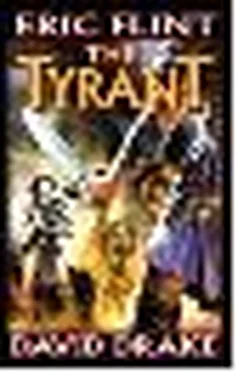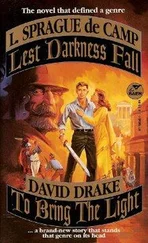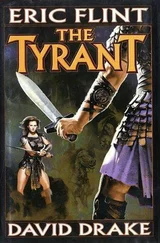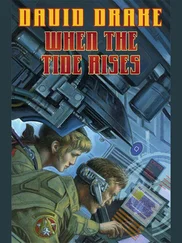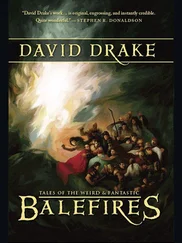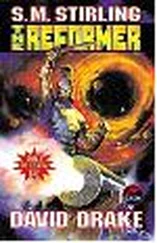David Drake - Tyrant
Здесь есть возможность читать онлайн «David Drake - Tyrant» весь текст электронной книги совершенно бесплатно (целиком полную версию без сокращений). В некоторых случаях можно слушать аудио, скачать через торрент в формате fb2 и присутствует краткое содержание. Жанр: Боевая фантастика, на английском языке. Описание произведения, (предисловие) а так же отзывы посетителей доступны на портале библиотеки ЛибКат.
- Название:Tyrant
- Автор:
- Жанр:
- Год:неизвестен
- ISBN:нет данных
- Рейтинг книги:5 / 5. Голосов: 1
-
Избранное:Добавить в избранное
- Отзывы:
-
Ваша оценка:
- 100
- 1
- 2
- 3
- 4
- 5
Tyrant: краткое содержание, описание и аннотация
Предлагаем к чтению аннотацию, описание, краткое содержание или предисловие (зависит от того, что написал сам автор книги «Tyrant»). Если вы не нашли необходимую информацию о книге — напишите в комментариях, мы постараемся отыскать её.
Tyrant — читать онлайн бесплатно полную книгу (весь текст) целиком
Ниже представлен текст книги, разбитый по страницам. Система сохранения места последней прочитанной страницы, позволяет с удобством читать онлайн бесплатно книгу «Tyrant», без необходимости каждый раз заново искать на чём Вы остановились. Поставьте закладку, и сможете в любой момент перейти на страницу, на которой закончили чтение.
Интервал:
Закладка:
Adrian didn't really appreciate that last remark. He was having a hard enough time controlling his stomach as it was. Their column was passing through a village which had been ravaged recently by Southron cavalrymen ranging far ahead of the main army, and the leavings of their atrocities were scattered everywhere. Men tortured in the most hideous ways imaginable — the same for the women, with rape added into the bargain — children slaughtered, cottages burned.
There was not even any point to most of the butchery. Abstractly, Adrian could understand murder and rape. But why expend the time and effort to kill a peasant by flaying him alive? And why, after gang-raping his wife, impale her in such a grotesque manner? Or scatter the entrails of an infant so small that a quick sword slash would have killed him instantly?
The thing about a barbarian's life is that it's barbarous. It's not that these men are intrinsically any more evil than civilized people, it's simply that there's nothing else to serve as a counterweight. None of the cultural overlay which — sometimes, at least — a civilized society instills in its members. So when they do go on a rampage, they exhibit all the unthinking glee in cruelty that a five-year-old boy does playing with insects.
I didn't, protested Adrian. He averted his eyes from a woman's naked corpse hanging from a nearby tree. She'd been suspended upside-down and then—
He struggled fiercely for a moment, trying to keep from vomiting. I didn't torture insects, he repeated, protesting.
He could sense Whitehall's shrug. Plenty of "civilized" boys do, lad. Lots of them. But as they age, they're taught that people are not insects. Whereas for a barbarian, anyone not of "our people" — which is the same as "the" people — is usually considered no different from an animal. Except that most barbarians don't treat their animals this badly. Not even close.
"Fucking savages," hissed Helga. She was riding next to him, at the head of the column, on her own velipad. Unlike Adrian, Helga was not trying to avoid looking at the carnage. She had a stronger stomach than he did, as he'd learned soon after making her acquaintance.
"Complete animals." She gave Adrian a look which was not filled with admiration. To put it mildly. "I hope you and Father know what you're doing," she growled. "Me, I'd rather see these bastards destroyed root and branch."
To Adrian's relief, the column was leaving the remains of the village. The road — a typically good Confederate one, even here — was reentering one of the small forests which dotted the landscape of the southernmost province of the Confederacy. This province, being one of the "marches," was relatively underpopulated. The reason for which, of course, was precisely the danger of Southron raids.
But this was a full-scale invasion, not a raid, and the villages this far from the frontier were not really alert the way the settlements near Kellinek's Wall had been. The core of the Southron army was moving very slowly — much more slowly than Confederate infantry would have done — because of their cumbersome wagons. But a good two thirds of the barbarian force came from tribes other than the Reedbottoms, and weren't hampered by Adrian's "gun-wagons." They were ranging far ahead and scattering out, following their usual customs, despite all of Adrian's protests to Chief of Chiefs Norrys. So they fell on unsuspecting villages like a sudden nightmare; a human tidal wave from a burst dam, drowning peasants caught by surprise on a flood plain.
Not that the alertness of the soldiers guarding the Wall had done them much good. The Wall had been erected by Speaker Kellinek a century earlier, and had never been designed to stop this kind of invasion. Kellinek had simply aimed to create something strong enough to deter small raids, and act as a tripwire against large ones. The job of the Wall's garrison was merely to slow down an invader long enough for the regional governor to bring up the mighty power of the regular brigades.
The Wall was really just a turf mound with a wooden palisade. Every few miles, a small garrison — not more than a hundred, usually — was stationed at a wooden fortress with a watchtower. The major weapon they possessed were a couple of ballista mounted on the towers.
Between Adrian's gunners and the numbers which Norrys commanded, the barbarians had had no difficulty breaching the Wall. Adrian's arquebusiers had slaughtered any Confederate soldier bold enough to remain in the towers or stick himself far enough above the palisade to cast a missile. And while the Southrons had no real notion of "siege warfare," they numbered perhaps twenty thousand, in addition to the ten thousand Reedbottoms under Prelotta's authority.
The aversion of Southron warriors to menial labor did not extend to warfare. Thousands of them had readily dismounted at Norrys' command and built log-and-earthen ramps which enabled them to storm the palisade. Working with the most primitive possible tools, yes, nothing more than axes and crude shovels — but even working with such, thousands of men can erect a ramp in a few hours. Especially with Adrian's gunners providing them with covering fire.
Thereafter, given the gross disparity in numbers, the Confederate soldiers manning the Wall had been butchered. Along with, needless to say, all the civilians in the settlements which had appended themselves over the past hundred years to the fortresses.
The Wall had been overwhelmed in a single day. By the next morning, thirty thousand Southrons were pouring into the southern provinces of the Confederacy.
The only survivors, except a few who managed to flee on velipads or find hiding places in the forests, had been those overrun by the Reedbottoms. Prelotta's men treated their captives brutally, but they didn't kill them. That was at their chief's command. Which had been occasioned not by any "humanitarianism" on his part, but cold-blooded calculation. Prelotta wanted slaves, not useless corpses.
the first step forward in the rise of civilization,commented Center, as bizarre as it may sound. enslave people instead of slaughtering them. and do it systematically.
Adrian pondered the computer's words. Slavery was a familiar enough practice among the Southrons. But it had what you might call a "casual" nature. Most slaves were members of another tribe captured in the course of the barbarians' incessant internecine warfare. Treated savagely, at the time of capture — but then, usually within a generation, absorbed into the capturing tribe. The slaves were more in the nature of trophies and personal servants than a labor force subjected to systematic exploitation.
Prelotta, Adrian knew, intended to change that. The other Southron tribes had joined this great invasion for the customary reasons — loot, and the prospect of "martial glory." Only Prelotta was thinking further ahead than that. He intended to occupy this territory, and remain there after the other tribes returned south for the winter. Prelotta was thinking like a conqueror, not a raider — and for that, he needed a subject labor force.
Helga was still glaring at him. Adrian tried to think of what he might say to mollify her, but the only words which came to him were. . best left unspoken.
This is really no different from what your father's doing in the islands, love. In principle, at least. Use a conquered land's resources and labor force to enhance your own power and wealth. Um. Granted, the methods are dissimilar. Um. To put it mildly.
The methods are what matter. A civilized conqueror — one, at least, who's willing to think like a civilized man — can substitute mercy for cruelty and forethought for rapine. So, in a generation — even less — Verice Demansk stands to rule over a realm even richer than it was, and with a subject population that is not really that discontented with its new rulers. Because they, too, are sharing in the new wealth. And even enjoying their new status, if the conqueror is a very intelligent man. Which we think Demansk is.
Читать дальшеИнтервал:
Закладка:
Похожие книги на «Tyrant»
Представляем Вашему вниманию похожие книги на «Tyrant» списком для выбора. Мы отобрали схожую по названию и смыслу литературу в надежде предоставить читателям больше вариантов отыскать новые, интересные, ещё непрочитанные произведения.
Обсуждение, отзывы о книге «Tyrant» и просто собственные мнения читателей. Оставьте ваши комментарии, напишите, что Вы думаете о произведении, его смысле или главных героях. Укажите что конкретно понравилось, а что нет, и почему Вы так считаете.
